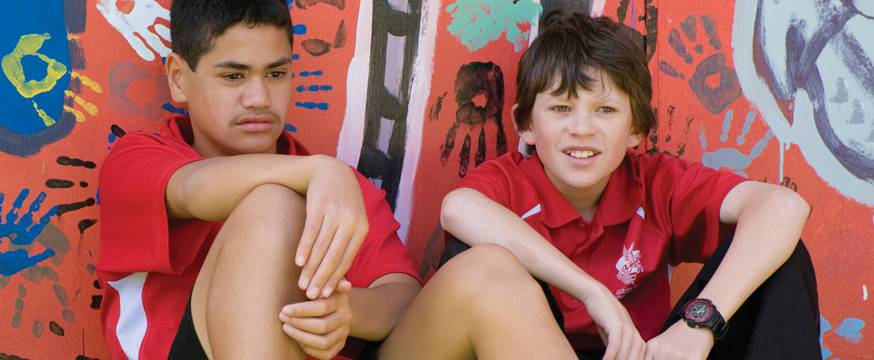
Sporting Chance program receives thumbs up
Research 24 Feb 2012 3 minute readThe Sporting Chance Program uses sport and recreation as a ‘hook’ to encourage young Aboriginal and Torres Strait Islander students to engage with formal schooling. The program offers two approaches: school-based Sports Academies and Education Engagement Strategies (EES). In 2011 there were around 11 000 primary and secondary school students involved in the program.
The Academies and EES projects are delivered by project providers, such as the Australian Football League, Clontarf Foundation, Bluearth Institute and Country Rugby League NSW. In late 2010 there were 22 providers operating 54 Academies and five EES projects.
ACER was commissioned to see if the program was achieving its objective of encouraging improved educational outcomes, particularly in relation to attendance, engagement, learning achievement, staying on at school, and improving the level of parent and community involvement in school. The report was released in February 2012.
One thousand students participated in the study. Principals, teachers, sports academy staff, EES staff, parents /carers and community members also provided feedback on the program.
As part of the evaluation ACER reviewed the literature on student engagement and found there is considerable variation in how student engagement is understood and conceptualised and that few studies have examined the concept of engagement in relation to Aboriginal and Torres Strait Islander students.
ACER explored four dimensions of engagement: positive self-concept, belonging, participation and attendance. The data collected during the evaluation suggests that before the cognitive or academic elements of engagement – as shown in learning achievement – can occur in Aboriginal and Torres Strait Islander students, there first needs to be present both cultural identity and a sense of belonging. This sense of belonging relates both to a broader cultural identity and an affinity with a more specific group, such as an Academy or team.
Feedback from students in the Sports Academies indicated improved levels of confidence and pride from developing new skills, having leadership opportunities, participating in team activities and undertaking other activities in a culturally safe environment. Students participating in the Education Engagement Strategies benefited from being exposed to a range of role models and activities.
A common feature of effective Academies and EES projects was the presence of highly skilled, culturally aware and dedicated staff members with the ability to build strong and trusted relationships with Aboriginal and Torres Strait Islander students.
Other critical success factors identified in the evaluation were the following: a willingness to engage communities in the planning and processes before a project was implemented; strong support from school leadership and staff; effective communication between the school and project provider and sufficient resourcing.
The evaluation also showed the importance for the Academies in particular of having strong external partnerships, such as with community and business organisations, tertiary providers and potential funders, and the importance of regular monitoring and evaluation so improvement can be shown.
Overwhelmingly, the feedback from Aboriginal and Torres Strait Islander students who participated in the evaluation was positive, particularly in relation to their attitudes to school, self-identity and self pride in being Aboriginal, and self-efficacy as learners.
Read the full report:
Evaluation of the Sporting Chance Program, by a team of ACER researchers led by Michele Lonsdale, is available from <research.acer.edu.au/policy_analysis_misc/14/>